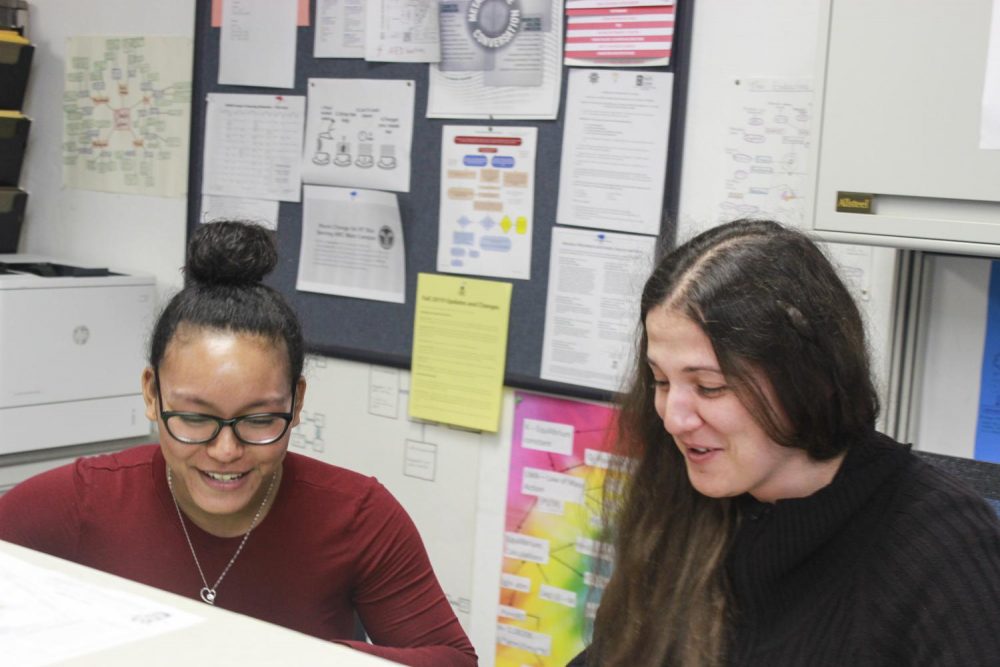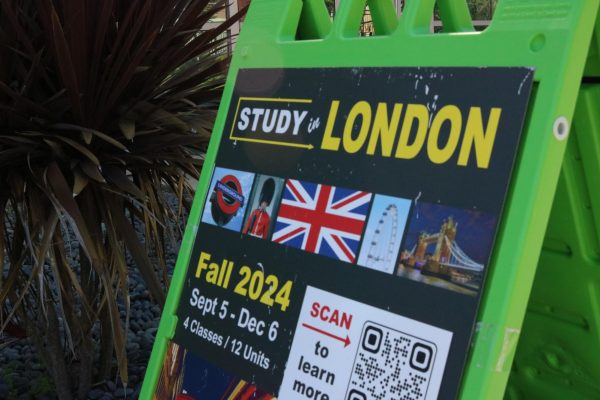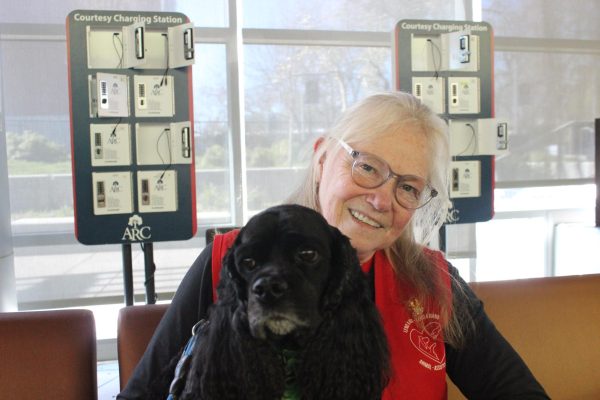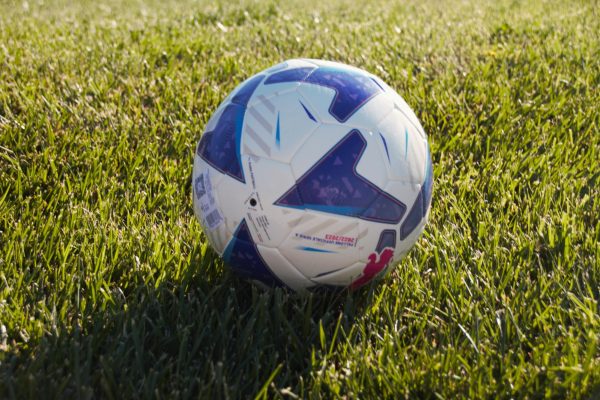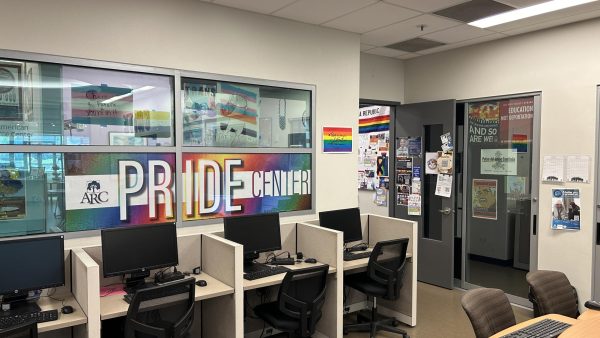Science Success Center is unable to host their 20th anniversary due to pandemic restrictions
Science Success Center celebration postponed until next year
Student tutor Mozett Coleman and instructional assistant Lyudmila Moraru work at the Science Success Center, which is geared towards helping students be successful in their classes at American River College. (file photo)
This year marked the 20th anniversary of American River College’s Science Success Center. However, with the pandemic, and ARC’s transition to online learning and operations, the Science Success Center staff were unable to host their anniversary celebration in person.
According to Lyudmila Moraru, an instructional assistant with the center, pandemic restrictions and the campus closure prevented everyone from physically coming together to celebrate their milestone.
“We were hoping for students to come into the center, pick up a flyer, maybe some snacks and just hangout and talk,” Moraru said.
Linda Zarzana, Science Success Center coordinator, said that the center would have to wait for next year to host its celebration.
“The announcement of our anniversary was made back in early August, and was brought back up again in a division meeting later on,” Zarzana said. “We were planning to do something next fall where strict guidelines for social distancing will most likely be lessened.”
The Science Success Center is an on-campus facility, which established in the fall of 2000, offers students opportunities to get additional help with any material they may be struggling with in their math or science classes, according to Moraru, who coordinates most of the center’s operations.
“It’s a support course for any student struggling in any kind of science class, Math 300 class or any other technical subject,” Moraru said. “It’s offered as a half credit course, and grades students based on how well they use the strategies taught to them.”
Moraru said that one of her duties as an instructional assistant, is to assist students in setting them up with a one-on-one tutor experience. According to Moraru, the students are encouraged to develop a relationship with a tutor, to better understand weaknesses that may need to be focused on and improved.
“It’s all about time management, giving strategies, and helping students with their work. It’s a center that builds a relationship between tutor and student,” Moraru said. “Both student and tutor are to come up with a schedule of their own to commit to. If a student doesn’t like the tutor they have, they can come to me and work to find another tutor suitable for them.”
The tutors chosen are past professors and students with previous knowledge on the subject, according to Moraru.
“The tutors are usually science majors and faculty,” Moraru said. “They are to help their students and give tips and advice to succeed, based on their own experiences and education.”
Moraru said despite the campus closure, operations have remained the same at the center. According to Moraru, the faculty staff weren’t significantly affected by having to move to a strictly online environment.
“We all work on a different schedule and don’t have many staff meetings,” Moraru said.
Physical enrollment operations, close-space staff interactions and other physical operations have been changed because of social distancing guidelines, she said.
“Because tutors and students are one-on-one versus a whole class, the tutor and student communicate and work things out with each other,” Moraru said. “That could be a private Zoom meeting between them, a phone call, etc.”
As for the Zarzana, she said she made light of the whole situation and remained positive.
“We will, for sure, do something next year. For now, we haven’t done anything but shout ‘woohoo’ for our center,” Zarzana said.


